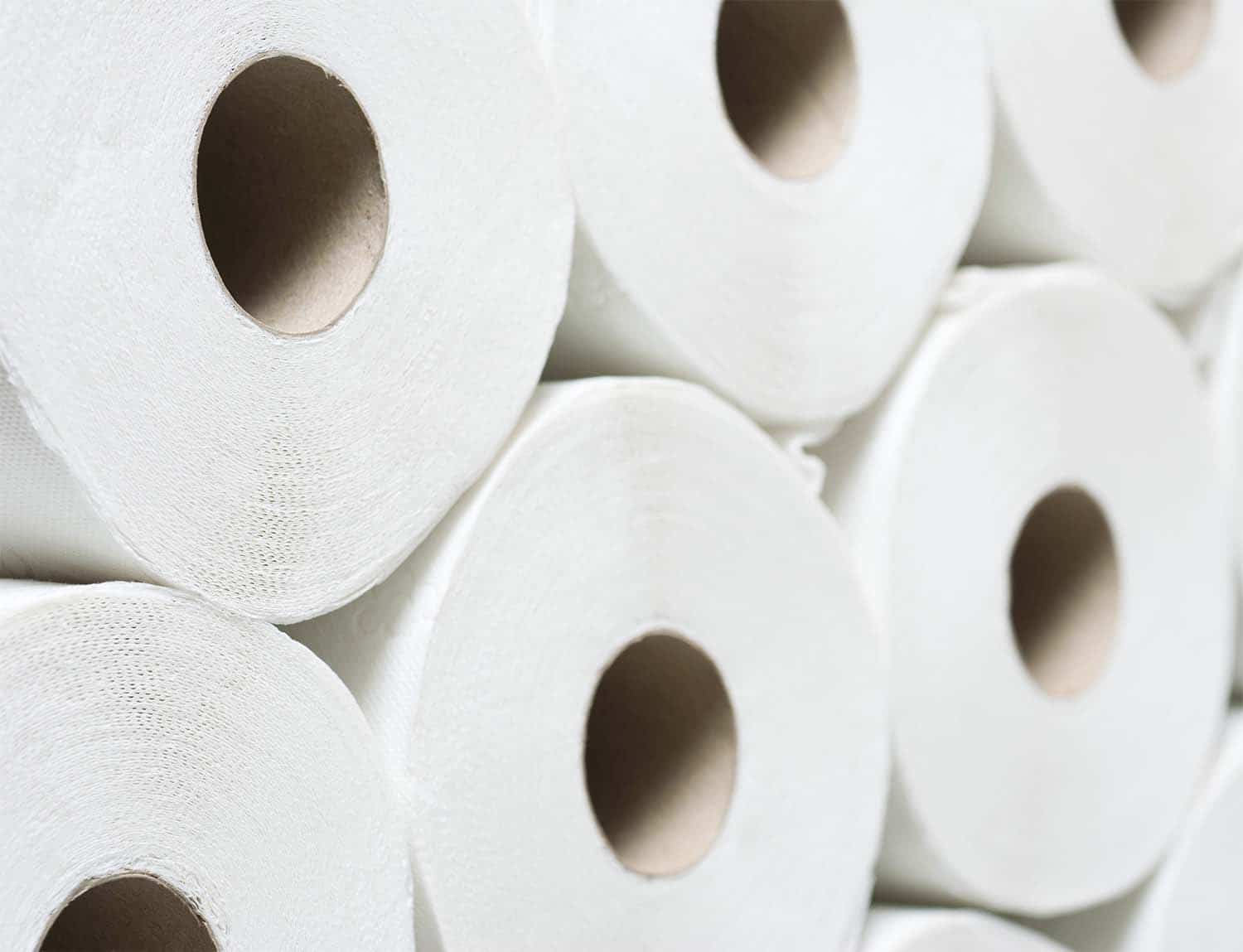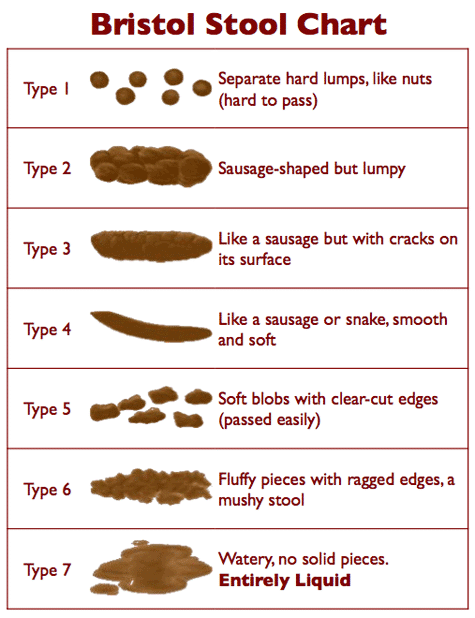
Diarrhoea
Diarrhoea is defined as stool that occurs more than three times a day, is increased in volume, and/or is thin (runny). You can read about who is affected and the possibilities for diagnosis and treatment here.
What is diarrhoea?
Diarrhoea is determined by stool frequency and stool texture. Stool frequency varies significantly with age; an infant may defecate 5 times a day, but once every 5 days is also quite normal. Many of those affected are convinced that they have diarrhoea - but a thin or loose stool does not justify the diagnosis of "diarrhoea". The prerequisite is that stools of reduced consistency (ie. not formed, but rather thin) passed several times a day - at least three times - accompanied by a strong urge to open your bowels, usually stool weight and volume are also increased.
Almost a third of the population gets diarrhoea every year, but only a small proportion of those affected seek medical advice. Worldwide, more than 2 million children die every year from diarrhoea, often caused by infections (i.e. bacteria, viruses, fungi or parasites).

What are the symptoms of diarrhoea?
Diarrhoeal diseases are usually accompanied by nausea, vomiting and a loss of appetite. Colic pain and abdominal cramps can also occur - such as with the so-called stomach flu or with a gastrointestinal infection. The intensity of the symptoms depends on the respective pathogen, as does the length of the time interval between infection and the appearance of the first symptoms. As miserable as those affected feel, they are usually back on their feet quickly. One or two days of bland food and bed rest and you are generally fit again.
However, some people struggle more with the symptoms. Severe diarrhoea and not drinking enough water can lead to serious dehydration. Severe dehydration can be seen on the skin, the skin folds remain visible after pushing together. Urine output also decreases. The urine is noticeably dark and concentrated. Affected people feel increasingly sleepy and dizzy, they are threatened with circulatory problems and kidney damage. Babies, toddlers and children in particular, as well as the elderly, are at acute risk due to the loss of fluids caused by severe diarrhoea.
If diarrhoea lasts for longer than three days and is so severe that the patient becomes noticeably weaker, a doctor should be consulted. Due to the significant loss of water and minerals, diarrhoea can be life-threatening, especially for children, those weakened by other illnesses and older people. Severe abdominal pains, a high temperature, repeated vomiting and blood in stools and a suspicion of poisoning are alarm symptoms which require clarification by a doctor.
Bristol Stool Chart
Types 5, 6 and 7 of the Bristol Stool Scale show the typical stool consistency in the case of diarrhoea.

What causes diarrhoea?
Diarrhoea is not an illness in itself, but a symptom that can be caused by a wide variety of infections or conditions. Doctors distinguish between acute and chronic diarrhoea:
Causes of acute diarrhoea
- The so-called stomach flu is usually caused by viruses (norovirus or rotavirus) or bacteria.
- Bacterial infections such as through food poisoning are mainly caused by salmonella, clostridia or staphylococci. These bacteria produce toxins that attack the lining of the stomach and intestines.
- Medicine (antibiotics, laxatives, heart medicines such as digitalis, painkillers, cytostatics (cancer drugs), magnesium-containing medicines to neutralise gastric acid)
- Consumption of large amounts of alcohol, coffee and sweets, also excessive consumption of sugar-free candies or chewing gum with the sugar substitute sorbitol.
- Anxiety, Stress
- Traveller's diarrhoea, infections predominantly from Escherichia coli bacteria
In principle, however, not every colonisation of the intestine with bacteria is an infection. The bacteria flora is part of the normal ecosystem of the digestive tract and it protects us from infections and harmful germs. Taking antibiotics can impair this protective function, therefore leading to diarrhoea.
Causes of chronic diarrhoea:
Chronic diarrhoea is linked to many different, sometimes serious, medical conditions. The onset is usually acute. In chronic diarrhoea, however, the symptoms appear for at least 3 to 4 weeks, repeatedly or in phases. In the meantime, the symptoms can subside again.
- A chronic inflammatory bowel disease (IBD), such as Ulcerative Colitis or Crohn's disease, can mimic an acute intestinal infection so a pathogen is initially suspected as the trigger
- Medication abuse with laxatives
- “Nervous stomach” (irritable bowel)
- Inflammation of the stomach lining (gastritis)
- Inflamed intestinal diverticula (diverticulitis = connective tissue inflammation of the bulges of the intestinal wall)
- Tumors, polyps
- Diarrhoea after radiation treatment and chemotherapy for cancer (due to damage to the intestinal mucosa)
- Food utilisation disorder (e.g. in liver dysfunction fatty stools - steatorrhoea)
- Food intolerance: gluten intolerance (celiac disease), cow's milk intolerance (lactose intolerance), fructose intolerance
- Chronic pancreatitis
- Chronic intestinal infections including HIV infections, immunodeficiency
- Mucoviscidosis (cystic fibrosis – a metabolic disorder in which an enzyme defect leads to increased production of thick, viscous mucus in various organs, including the pancreas and lungs) with serious functional and "food utilisation" disorders)
- Metabolic diseases (hyperthyroidism, hypofunction of the adrenal cortex, diabetes mellitus type 1 and 2)
Complications such as infant dyspepsia; diarrhoea in infants is a sign of a nutritional disorder and should be carefully monitored and medically accompanied, as this can quickly lead to a life-threatening condition in the infant. This can occur, for example, when switching from breast milk to infant formula or follow-on formula.
How can diarrhoea be diagnosed?
When visiting the doctor, you will be asked about your medical history and your symptoms. The doctor will discuss several points with you.
- Stool frequency and texture
- Eating habits – eating and drinking
- Accompanying symptoms such as pain and bloating, vomiting and fever
- Ask about other illnesses
- Ask about medications that are being taken that may affect bowel movements (laxatives, antibiotics, etc.)
- Questions about family history (existence of illnesses in the family)
- Ask about intestinal diseases (e.g. chronic inflammatory bowel diseases (IBD) associated with severe diarrhea)
- Thyroid function check
After discussing your problems, a physical examination may be carried out during which the doctor looks at the anus and feels and listens to the abdomen. A stool sample can provide information about digestive disorders and problems with the intestinal functions. In addition, the stool is examined for hidden (occult = invisible) blood. The blood count, thyroid hormones, and electrolytes such as sodium, potassium, and calcium are analysed in the laboratory.
If the symptoms occur acutely, they are accompanied by weight loss, fever, tiredness and/or blood in the stool, serious illnesses can be behind the diarrhoea and it is essential that further medical clarifies the underlying cause. In addition to an examination (Fever? Stomach pain? Colic?), Medical history (Nutrition? laxatives?) and examination of the composition of the stool, in the case of chronic diarrhoea, imaging procedures such as a colonoscopy will also be suggested by the doctor to establish the diagnosis.
Other possible diagnostic measures of diarrhoea:
- Ultrasound examination of the entire abdomen (sonography)
- Radiological examination of the intestine (X-ray), mostly in the form of computed tomography (CT)
How to treat diarrhoea
Diarrhoea is uncomfortable and you want to get rid of it as soon as possible. There are many causes; Acute diarrhea is often caused by spoiled food (“food poisoning”) or viral (bacterial) infections. Diarrhoea is a also side effect of taking certain medications and taking antibiotics. If diarrhoea persists for a long time, a doctor must be consulted. Chronic intestinal inflammation, metabolic diseases, or food intolerances may be the cause.
What to do in case of acute diarrhoea?
- Diarrhoea is a natural reaction of the body helping itself to eliminate toxins. It is therefore important not to suppress this elimination process and not to stop intestinal movement immediately with chemical-based medication.
- The most important thing is to counteract dehydration. For this purpose, a lot of liquid enriched with minerals (potassium, sodium, etc.) and sugar (glucose) should be drunk. Sugar helps absorb (adsorb) liquid better; Black tea contains tannins that have an antidiarrhoeal effect (if it has been brewed long enough, at least 5 minutes) and can soothe the intestinal mucosa).
- Food abstinence: Normal eating habits should be built up again slowly, initially no solid food should be eaten, and milk should also be avoided. From the second day, soups (oatmeal, for example) are allowed. Once the intestines have calmed down, you can slowly return to normal food.
Bloodroot, psyllium, blueberries, and chamomile are particularly recommended from herbal medicine. Humic acids also have a detoxifying effect and, in addition to probiotic multispecies preparations, support the regeneration of the intestinal mucosa.
Probiotics & Diarrhoea
We need probiotic bacteria in high numbers in our gut, as only they can ensure that our body can process the food we eat correctly. If the diversity of the gut flora is reduced by taking medication, then the fermentation or putrefaction processes begin, which influence the intestinal activity or also lead to increased fluid excretion and, through toxins, to increased permeability of the damaged intestinal mucosa. Probiotics with highly active bacterial strains can lead to a normalisation of stool frequency, regeneration of the damaged intestinal mucosa, and an improvement in stool consistency. Stress, which promotes peristalsis in the gut and additionally has a harmful influence on the balance in the intestine, should be avoided. Diarrhoea is often a symptom of irritable bowel syndrome, which is triggered among other things by stress.
Medication for Diarrhoea
- Adsorbents such as activated charcoal, kaolin, silicon dioxide and humic acids have a physical effect. They bind dissolved substances like toxins and fight the cause of the diarrhoea, and minerals (potassium, sodium, etc.) replace the salts lost through diarrhoea.
- Antibiotics should only be used if the bacterial pathogens causing the diarrhoea are known and a specifically effective antibiotic is used. Parallel to the administration of antibiotics, the intestinal flora should be treated with specially targeted synbiotics.
Butylscopolamine can help with abdominal cramps. However, you should not take this without a doctor's prescription and for no longer than a few days.

